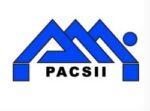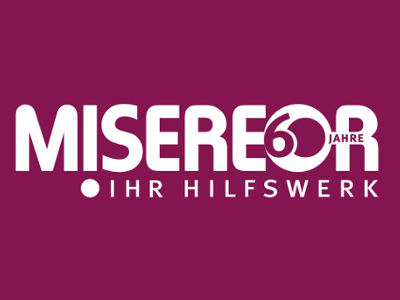Misereor
MISEREOR is right there at the side of the weak
MISEREOR supports the weakest members of society: the poor, the sick, the hungry and the disadvantaged. It is of no importance whether those in need of help are men or women, what religious beliefs they hold or where they come from. To love one’s neighbour is a basic attitude of Christian life, and MISEREOR’s vocation is to translate this attitude into concrete action; the poor are our sisters and brothers, who have a right to a life of dignity. MISEREOR supports them in realising it. The organisation does not pursue any ends other than the promotion of development. The mandate given to MISEREOR by the German Bishops rules out the promotion of pastoral or missionary measures.
‘Misereor super turbam – I have compassion on the crowd’ (Mk 8.2) These words of Jesus contained in the Bible gave the organisation its name. Compassion for people in need has remained the defining underlying motivation and characteristic of MISEREOR’s activities to this day.
The dream of a more just world
The development projects supported by MISEREOR are as diverse as the causes and faces of poverty. They all have one thing in common, though. They all focus on the whole human person. As well as satisfying basic needs such as food security, they also help ensure that human rights are upheld and the way is paved for the people concerned to live in dignity.
Our ideal would be a world in which all human beings are able to participate in shaping their communities, in which cultural diversity is recognised and promoted, and in which equality is a reality. All these are overarching goals that are, among others, pursued in project planning.
MISEREOR strengthens self-initiative
MISEREOR is convinced that poor and disadvantaged people too possess the strength to substantially improve their lives. Where the poor are able to put their talents, knowledge and capabilities to good use, they themselves become the engine of change and development. Many of them then discover for the first time that they have not been dealt an immutable fate for all time.
in many little places
do many little deeds
they can change
the face of the earth.”
African proverb
Projects supported by MISEREOR therefore strengthen the self-initiative of the poor, and encourage them to articulate their interests and needs – not as supplicants, but as people who know their rights and obligations. Support of this kind at the same time helps the poor avoid becoming dependent on foreign aid.
MISEREOR relies on local partners
When a new MISEREOR-supported project is launched this does not mean that development experts from Europe travel to the region in question with what they suppose to be the right solutions in their luggage. MISEREOR prefers to rely entirely on its local partners: Church-based institutions, non-governmental organisations, social movements and research institutes with which the agency cooperates closely, and in some cases has done so for decades. Together with the beneficiaries, the partners involved help shape local development processes and implement the projects. They receive support from MISEREOR in the form of advice, expertise and funds.
MISEREOR is not only a donor, but also a learner, a partner in dialogue and a companion in solidarity. This creates a process of permanent exchange characterised by trust, an ability to express and deal with constructive criticism, and a willingness to learn. This is how MISEREOR, together with its partners, responds to constantly changing challenges.
MISEREOR stands for transparency
MISEREOR uses the funds available to it responsibly, economically and efficiently, and regularly accounts to the individual and public donors providing it with the money. A multistage monitoring system guarantees that the stewardship of funds remains transparent both within and outside of the organisation.
MISEREOR has set both itself and its partner organisations clear rules. All areas of work are regularly and consistently monitored. Internal guidelines for staff members and line managers contribute to ensuring that any forms of abuse or corruption are prevented. The requirement of maximum transparency also includes the regular publication of data on the source and use of funds. Furthermore, the effectiveness of the development work performed in the projects supported by MISEREOR is also reviewed by external consultants, and documented every year in a public evaluation report.

